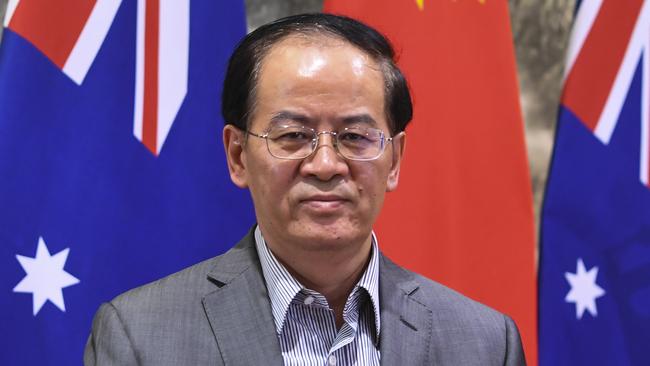Tourism next in Beijing’s crosshairs
China’s ambassador to Australia signals tourism may be the next industry affected by deteriorating relations.

China’s ambassador to Australia, Cheng Jingye, has signalled tourism may be the next industry affected by the deteriorating relations between the two nations, citing “racial discrimination’’ against Chinese in Australia.
In a video address to the Australia China Business Council on Thursday, Mr Cheng warned Australia not to expect a revival of the lucrative Chinese tourist market to Australia when international borders reopened. The Chinese tourism market reached a high of $12.4bn a year before the onset of COVID-19.
“Racial discrimination against the Chinese community is increasing,” Mr Cheng said.
“It could create obstacles for Chinese travellers to return. It makes people wonder whether this country would still welcome Chinese tourists to come here.
“My fear is whether Chinese travellers are as welcome as they used to be, about whether there is a friendly, favourable environment which is conducive to their return.”
Chinese tourists to Australia had hit a record 1.44 million a year by the end of 2019, spending $12.4bn a year, or 27 per cent of total spending by foreign tourists.
Their spending far outstripped the next largest sources of tourism spending — $3.9bn a year by tourists from the US, $3.4bn by UK tourists and $2.6bn by visitors from New Zealand.
Mr Cheng’s comments came as figures from Wine Australia showed wine exports to China, once worth more than $1bn a year, had almost been wiped out by tariffs imposed by Beijing in November last year.
China’s Ministry for Foreign Affairs also lashed out at Home Affairs secretary, Mike Pezzullo, describing him as a “trouble maker” who was hyping up the “threat of war:”
Ministry spokesman Zhao Lijian described as “extremely irresponsible’’ remarks by Mr Pezzullo in an article in The Australian earlier this week warning that “the drums of war are beating” and that Australia might have to “send off … our warriors to fight”.
Mr Zhao said some “individual politicians” in Australia were keen to make statements that “incite confrontation and hype up the threat of war”.
Mr Cheng also issued a bleak assessment of the deterioration of the Australia-China political relationship, which he blamed on Australia.
His remarks reiterated many official Chinese complaints against Australia, including Australia’s move to ban Chinese telecommunications giant Huawei from supplying equipment for Australia’s 5G network, “discrimination” against Chinese companies wanting to invest in Australia, “interference” in China’s domestic politics, and the “unreasonable and irrational” tearing up of Victoria’s memorandum of understanding with China on its Belt and Road Initiative.
Mr Cheng said Australia had “poisoned the atmosphere and damaged the foundation of bilateral ties”, which had led to the current poor state of Australia-China political ties.
His comments come as the Australia-China business community is bracing for more retaliation from Beijing following the federal government’s move to strike down Victoria’s Belt and Road agreement with China signed in 2017.
A year ago Mr Cheng warned that Chinese purchase of wine, beef and other goods could be hit in the wake of Australia’s call for an inquiry into the origins of the COVID-19 virus — comments that were interpreted in Beijing as an attack on China.
Those comments were followed by announcements of tariffs on imports of Australian barley, which effectively killed a $1bn-a-year export market.
They were followed by moves against five meat processing plants around Australia blocking acceptance of their beef into the China market and the announcement in November of tariffs against the imports of Australian wine which have ended the Australian wine trade with China.
Last year also saw import restrictions on Australian coal going to China while exports of timber and lobster also faced import problems.



To join the conversation, please log in. Don't have an account? Register
Join the conversation, you are commenting as Logout